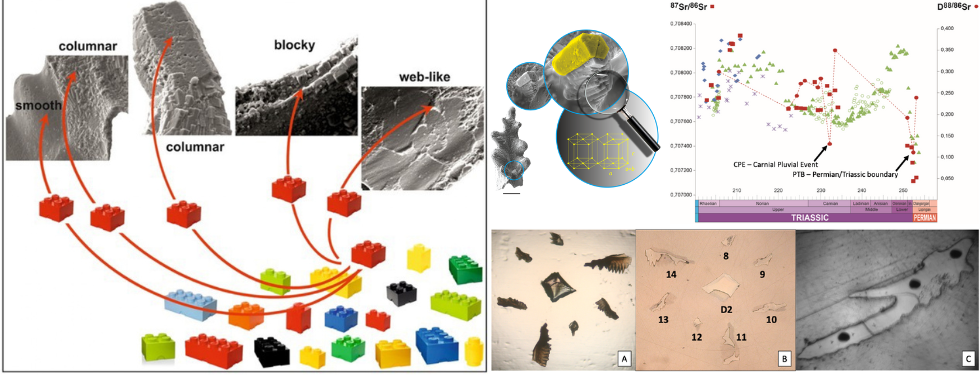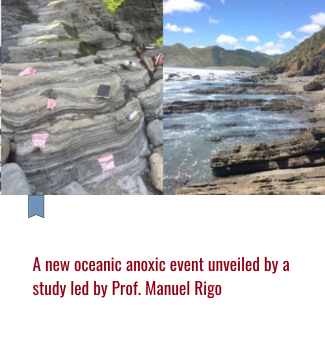Impacts Of aCidification on past biodivErsity: insights from mAriNe vertebrateS


Title: Impacts Of aCidification on past biodivErsity: insights from mAriNe vertebrateS (OCEANS)
Principal Investigator: Manuel Rigo | Programme: PNRR DD 1409 del 14/09/2022

Anthropogenic activities are one of the main drivers of the current global climate crisis, which in turn poses large-scale extinction risks for several species. As expressed in the EU's biodiversity strategy plan, reversing the degradation of ecosystems and ultimately preserving species variety are central strategic objectives for the 2020-2030 decade, with focused actions concerning the environmental recovery of lands and oceans. These latter, specifically, are key in controlling climate changes due to their ability in storing CO2. Yet, the more carbon dioxide reacts with seawater, the more the pH decreases, leading to imbalances in carbonate chemistry (i.e., less dissolved carbonate ions and more bicarbonate ions), a process known as "ocean acidification". Fossil skeletal archives are critical to understand and possibly foresee the impact of climate change on oceans, providing an (almost) continuous record of past climate events for time frames up to millions of years. In this framework, OCEANS aims to determine the role played by significant increases of greenhouse gases (i.e., CO2, CH4) and the resulting temperature fluctuations in the hydro- and the bio- sphere during specific relevant time intervals of the geological past, by exploiting bioapatite chemistry. To date, most studies rely on calcareous materials as palaeoclimate records to investigate past ocean acidification. OCEANS proposes an innovative approach in deciphering the signal of ocean acidification by using marine vertebrates. Specifically, we will investigate the Ca stable isotope compositions (i.e., δ44/40Ca) of biogenic apatite (conodonts) as robust proxies for changes in palaeo-ocean chemistry (acidification, pCO2), and apply a multidisciplinary geochemical approach by analysing the composition of REEs, trace and major elements of rock bulk (and fossils) to disentangle the palaeoenvironmental conditions of ancient oceans. Hence, the ultimate goal of the project is to reconstruct the nexus between climate changes and evolution of life. In particular, OCEANS aims to unravel the consequences of ocean acidification during three specific extinction events, namely the Permian/Triassic and the Triassic/Jurassic boundaries and the Late Ordovician time period, known to be periods of remarkable greenhouse gases emissions. The approach we propose here has two main objectives: 1) to monitor the geo-biosphere evolution on long-term (ca. 50 Myr) and short-term (0.5-1.5 Mry) scales, during periods of rapid increase of greenhouse gases resulting either in global warming (i.e., Permian/Triassic and Triassic/Jurassic boundaries) or in global cooling and then warming (i.e., Hirnantian glaciation, Late Ordovician); 2) to examine the mechanisms which allowed the system to recover in such contrasting scenarios, triggered by the same pre- perturbation conditions we are experiencing today, aiming to provide a reliable archive and a consistent data set for future provisional settings.






